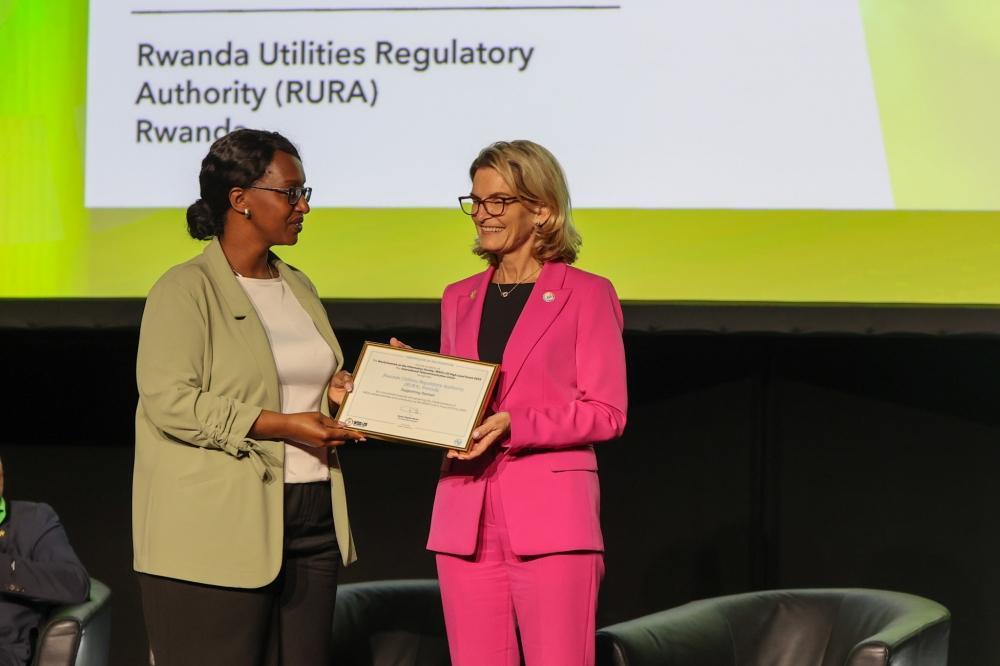Africa-Press – Rwanda. The Rwandan government was recognized this week for its efforts to improve digital inclusion and digital literacy at a major global technology and development forum in Geneva, Switzerland.
At the event marking 20 years of the World Summit on the Information Society (WSIS), a United Nations-led process focused on ensuring that digital technologies support social and economic development for all. The event was organised by the International Telecommunications Union (ITU).
During the forum, Rwanda received two separate honors: its Digital Ambassadors Program (DAP) was named a WSIS+20 Champion on July 7, and the country was awarded a WSIS+20 Partner Certificate on July 10 for its continued leadership in people-centered digital transformation.
Both awards were achieved through the work of key national institutions, including the Rwanda Information Society Authority (RISA), which leads the Digital Ambassador Program, and the Rwanda Utilities Regulatory Authority (RURA), which regulates the country’s broader digital development agenda.
The honours were formally received by Rwanda’s Ambassador to Switzerland and Permanent Representative to the United Nations Office at Geneva, Urujeni Bakuramutsa.
Speaking after the awards were announced, the Minister of ICT and Innovation, Paula Ingabire, noted that the role of citizens is vital to Rwanda’s digital transformation.
“We are proud to receive this global recognition for the Digital Ambassadors Program. It proves that digital progress begins with empowering and training people so they can help their communities,” Musoni said.
“We also thank our partners—the World Bank, AIIB, and KOICA—for their ongoing support. We will keep working to make sure everyone in Rwanda can use digital tools.
Launched in 2017 under the National Strategy for Transformation (NST1), the Digital Ambassadors Program was created to address the country’s low levels of digital literacy, then under 10%.
Digital ambassadors help citizens learn how to use digital tools in their daily lives. They teach citizens how to access government services online through platforms like Irembo and Byikorere, use mobile money and digital business apps, make secure payments, use smartphones and computers, and stay safe and responsible when using the internet.
The programme recruits ICT-trained youth, including secondary school graduates and university alumni, to train citizens in basic digital skills.
Under the programme, over 3.2 million Rwandans have been trained, helping to increase the country’s basic digital literacy to more than 75% by October 2024, according to the National Institute of Statistics of Rwanda. The government targets universal digital literacy by 2029 under NST2.
Starting with just 50 ambassadors, the initiative has grown to over 2,000 active ambassadors and 60 district-level supervisors, supported by various development partners who work directly with communities.
The program’s impact goes beyond teaching digital skills—it has led to more people using online government services, more people owning smartphones and engaging digitally, better access to important services like health, education, and land management, growth in online shopping and digital payments, and created new jobs that empower young Rwandans.
Rwanda is currently serving on the ITU Council for the 2023–2026 term and plans to seek re-election for the 2027–2030 term at the ITU Plenipotentiary Conference in Doha, Qatar, in November 2026, officials said.
For More News And Analysis About Rwanda Follow Africa-Press






